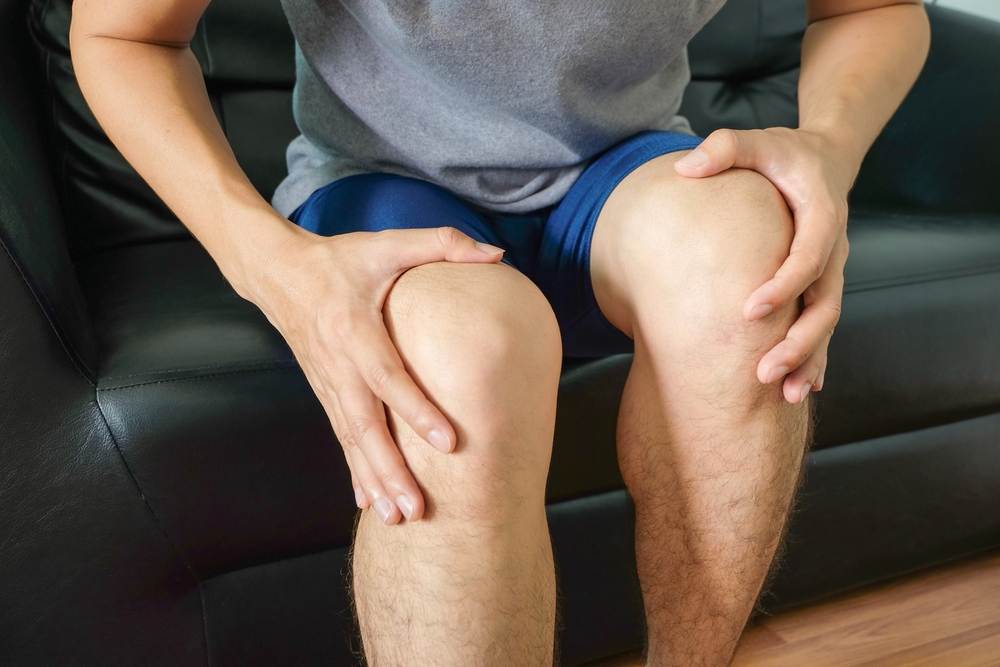 When you think about going to the chiropractor, you might have neck or back pain in mind. But chiropractors treat more than just spine injuries – they work with all types of musculoskeletal conditions, including knee pain. By focusing on the alignment of the spine and joints, chiropractic care aims to alleviate pain and improve healthy functioning. Chiropractic knee pain treatment involves assessing the entire musculoskeletal system to identify underlying issues contributing to the discomfort. Adjustments, exercises, and other non-invasive methods help restore balance and function with a drug-free alternative for relief. This natural treatment approach targets symptoms and aims to address the root causes of knee pain, ultimately promoting long-term health and mobility.
When you think about going to the chiropractor, you might have neck or back pain in mind. But chiropractors treat more than just spine injuries – they work with all types of musculoskeletal conditions, including knee pain. By focusing on the alignment of the spine and joints, chiropractic care aims to alleviate pain and improve healthy functioning. Chiropractic knee pain treatment involves assessing the entire musculoskeletal system to identify underlying issues contributing to the discomfort. Adjustments, exercises, and other non-invasive methods help restore balance and function with a drug-free alternative for relief. This natural treatment approach targets symptoms and aims to address the root causes of knee pain, ultimately promoting long-term health and mobility.
Common Causes of Knee Pain
Knee pain can happen to anyone at any time, though there are some common reasons why you might experience knee pain and end up at the doctor’s office. Common causes include:
- Injuries: Traumatic incidents, such as sports-related injuries, slip and fall injuries, or car accident injuries, can lead to knee pain. Knee pain can be caused by anything from bruising to broken bones.
- Osteoarthritis: The degeneration of joint cartilage over time can result in osteoarthritis, leading to pain, stiffness, and reduced mobility in the knee.
- Rheumatoid Arthritis: An autoimmune condition affecting the joints, rheumatoid arthritis can cause inflammation and pain in the knees.
- Overuse or Strain: Repetitive activities, excessive strain, or prolonged periods of standing can put too much pressure on the knee joints and surrounding structures, resulting in pain.
- Muscle Imbalances: Weakness or imbalances in the muscles supporting the knee may also contribute to pain.
- Tendonitis: Inflammation of the tendons around the knee, known as tendonitis, can result from overuse or injury, leading to pain and swelling.
- Bursitis: Inflammation of the bursae, fluid-filled sacs that cushion the knee joint, can cause pain and swelling.
- Meniscus Tears: Injuries to the meniscus, the cartilage that cushions the knee joint, can cause pain, especially during movement.
How Knee Pain Can Impact You
Knee pain can significantly impact your daily life and affect your physical and emotional well-being. Persistent knee pain can restrict your ability to walk, climb stairs, or engage in regular activities, limiting your ability to participate in regular routines. Simple activities like bending, kneeling, or standing for prolonged periods can become challenging and painful. You might even find yourself avoiding certain physical activities due to knee pain, which can lead to a decline in overall physical fitness and may contribute to weight gain, further exacerbating the issue.
Knee pain can also interfere with sleep quality, making it difficult for you to find a comfortable sleeping position. This lack of restful sleep can contribute to fatigue and irritability. If left untreated, knee pain can develop into chronic pain, where the discomfort causes muscle tension and makes the pain worse. Chronic knee pain can take a toll on mental health, leading to stress, anxiety, and depression. The constant discomfort and limitations may result in a reduced quality of life and overall well-being. Reaching out early for chiropractic knee pain treatment can help you minimize the impact of this issue on your life and allow you to get back to your regular routines quickly and safely.
What to Expect with Chiropractic Knee Pain Treatment
When you visit your College Park chiropractor for knee pain, you can expect a thorough examination and a treatment plan tailored to address the underlying causes of your discomfort. Here’s what typically happens during a chiropractic visit for knee pain.
Medical History & Assessment
The chiropractor will begin by taking a detailed medical history, asking about the onset of your knee pain, any injuries, and relevant medical conditions. They may also ask about your overall health and any previous treatments you may have had.
Physical Examination & Diagnostic Testing
A comprehensive physical examination will help your chiropractor assess your knee and its range of motion. They may also examine other areas, including the spine, hips, and ankles, because these can impact knee function. In some cases, your doctor may order diagnostic imaging such as X-rays or CT scans to get a more detailed view of the knee joint and surrounding areas.
Chiropractic Treatments
Based on assessment and diagnostics, your chiropractor may perform targeted adjustments to the spine and other joints. Chiropractic adjustments are firm yet gentle and non-invasive ways to restore joints and nearby tissues to their proper positioning. These techniques help improve overall alignment, reduce pressure on the knee, and alleviate stress on the whole body.
Chiropractors often use soft tissue techniques such as massage, stretching, or myofascial release to address muscle tightness, improve flexibility, and promote healing. Your College Park chiropractor may also recommend specific stretches and exercises to strengthen the muscles supporting the knee and improve joint stability. Chiropractors may also provide guidance on lifestyle changes, including focusing on proper posture, ergonomics, and healthy movement patterns to prevent further stress on the knees.
When to See a Chiropractor for Knee Pain
 It is always best to err on the side of caution when dealing with any type of pain, including knee pain. We can sometimes take for granted just how much we rely on our knees until something goes wrong. The sooner you talk to your doctor about any new or worsening knee pain, the sooner you can get started on addressing the root cause. College Park chiropractic and orthopedic doctors recommend seeing a chiropractor if you experience any of the following:
It is always best to err on the side of caution when dealing with any type of pain, including knee pain. We can sometimes take for granted just how much we rely on our knees until something goes wrong. The sooner you talk to your doctor about any new or worsening knee pain, the sooner you can get started on addressing the root cause. College Park chiropractic and orthopedic doctors recommend seeing a chiropractor if you experience any of the following:
- Acute Injuries: A sudden injury to the knee and resulting pain and other symptoms may require a trip to the doctor. From slip and fall injuries to sports injuries, chiropractic offers a non-invasive and drug-free option for treatment and recovery.
- Limited Range of Motion: If you start to experience a limited range of motion in your knee, it can make everyday movements from standing up to bending down difficult or even impossible. Chiropractic care can help improve joint mobility with targeted treatments to the area.
- Instability or Locking of the Knee: If you find yourself walking around and suddenly your knee gives out or you feel a locking sensation, it’s time to visit the doctor. This can be a sign of joint instability that can put you at greater risk for a serious injury.
- Degenerative Conditions: Arthritis and other conditions that get worse with time may not have a cure, but they can be managed effectively. Chiropractic can help maintain proper alignment and support for the knee joint.
- Chronic Pain: If you have chronic knee pain related to a musculoskeletal issue or past injury, chiropractic can help. Misalignments, poor biomechanics, and weakened support around the knee can all contribute to chronic pain, and chiropractic knee treatments can target these issues.
Chiropractic Knee Pain Treatment at AICA College Park
Don’t let knee pain keep you from living your life to the fullest! Visit College Park AICA Orthopedics and get started with a chiropractor near you for quality, comprehensive treatment and care. Our chiropractors work alongside orthopedic doctors, pain specialists, physical therapists, and more, so you will receive the best care all in one convenient location.